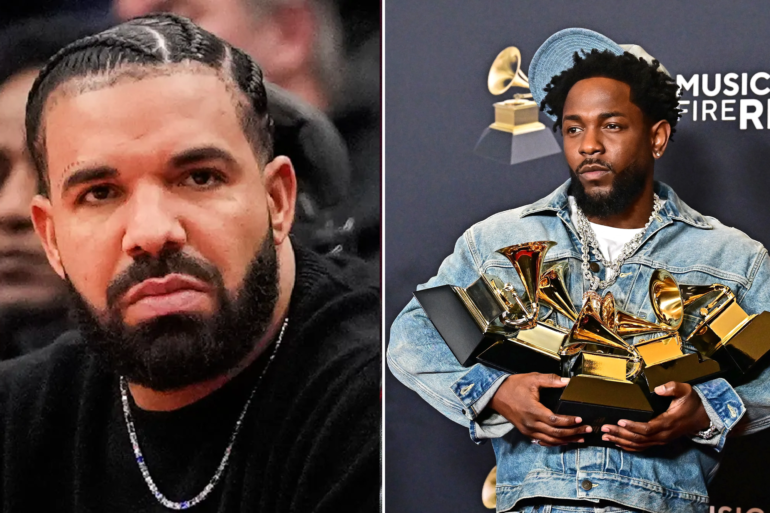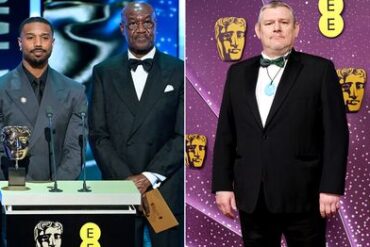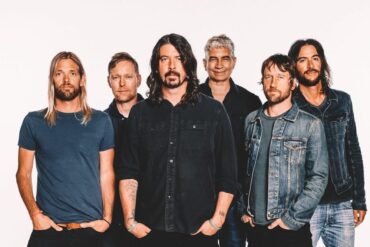TRE60 Scoring | Exclusive
Hip-hop beefs come and go, but every once in a while, the culture witnesses a war that redefines the genre. The Drake vs. Kendrick Lamar battle, which erupted almost a year ago, wasn’t just about bars—it was a seismic shift in power. What started with a seemingly out-of-nowhere jab from Kendrick on “Like That” quickly escalated into a full-scale lyrical war that had the entire industry on edge.
Now, as we look back, we ask: Who really won?
The Opening Shots: Kendrick vs. Cole vs. Drake?
The catalyst for the war was Kendrick’s now-infamous verse on Metro Boomin and Future’s “Like That.” Unlike past tension between the two MCs, this wasn’t a subtle jab or a slick double entendre—this was a full-speed, no-holds-barred attack.
Future: The Unbothered Spectator
One of the most unintentionally fascinating parts of Like That was Future’s presence. While Kendrick was launching an all-out assault on the rap hierarchy, Future floated in, melodic and detached, almost innocently unaware of the war erupting around him.
His delivery—smooth, effortless, almost hypnotic—felt like a contrast to the cold-blooded aggression Kendrick was bringing. It was as if Future was just there to vibe, unknowingly soundtracking a historic moment in rap beef.
And in classic Future fashion, he later tried to place himself in the “Big 3” conversation, even though nobody was debating his seat at the table. It was a reminder that Future, for all his dominance, has never really been seen as a peer to Drake, Kendrick, or Cole in that way—but that never stopped him from moving like he belonged.
“Like, why is everybody mad when he was talking about me on my song? So y’all just forgot about me, I ain’t part of this Big Three, I’m nobody on my song, man.” said Future.
Kendrick made it clear he wanted all the smoke, rapping:
“Yeah, get up with me.”
A direct callout. No subliminals, no riddles—just a blunt invitation to battle.
But what truly sent chills through hip-hop came after the verse ended. Right as the beat continued to roll, Kendrick let out a scream-like ad-lib, an animalistic outburst that cemented the moment as something more than just a diss. It felt primal. It felt personal.
Kendrick didn’t just diss Drake—he made it undeniably clear that this was war.
And while it initially looked like Cole vs. Kendrick might be the real preliminary bout, Cole shockingly pulled out.
For the first time in hip-hop history, we saw a top-tier rapper backtrack a diss track.
“The past two days felt terrible,” J. Cole said. “It let me know how good I’ve been sleeping for the past 10 years.”

Live, in front of thousands of fans, Cole apologized, saying he didn’t want to fight with Kendrick. While some viewed this as growth, others saw it as an outright forfeiture. Either way, it left one man standing against Kendrick: Drake.
Everyone knew it was only a matter of time before the OVO general stepped in.
Drake Fires Back: “Drop and Give Me 50”
Drake’s first response, “Push Ups” wasn’t a full-on assault but a strategic jab. He threw financial jabs, and ridiculed Kendrick’s commercial collaborations, making the world ask a simple but valid question:
“How does Drake not have a Taylor Swift song when Kendrick does?”

He also took aim at other industry players, including:
• A$AP Rocky (implying Rihanna settled for him)
• Metro Boomin (mocking his relevance beyond beat-making)
• The Weeknd (alluding to their longtime tension)
The track wasn’t overly deep, but it set the tone: If this keeps going, I have more.
Winning Line:
“Nah, p—-, now you on your own when you speaking up / You done rode deep to this and not f—- deep enough”
The ball was now in Kendrick’s court.
Kendrick Strikes Back: “Euphoria”
Kendrick’s “Euphoria” was everything fans expected from a Kendrick Lamar diss. The track was layered, featuring multiple voices, aggressive tone shifts, and surgical precision. He went at Drake’s parenting skills, his authenticity, and his reputation.
Looking Back: The Foreshadowing in Euphoria
In hindsight, Euphoria wasn’t just a diss—it was a warning.
One line in particular now reads like direct foreshadowing of what was to come:
“You make music that pacify ‘em, I can double down on that line, but spare you this time, random acts of kindness.”
At the time, it felt like a slick way of calling Drake’s music safe and comforting—but now, in the aftermath of Not Like Us and the deeper allegations woven into the battle, it’s clear Kendrick was hinting at something more sinister.
By the time Not Like Us dropped, Kendrick no longer spared him. The “pacify” line, which once seemed like a critique of Drake’s sound, now feels like an early allusion to the accusations Kendrick later made outright—ones that became a centerpiece of his attack.
And then, months later, Drake’s lawsuit against UMG landed. Suddenly, the machine that had fueled his career was something he was now fighting against. Whether or not there was validity to Kendrick’s claims, the fact that Drake took real-world legal action after the battle only made them hit harder.
If we believe Drake now, it taints his past wins. If we don’t, it makes him look desperate. Either way, Kendrick’s decision to “spare” him at the time now feels calculated—almost as if he knew where this was headed before Drake did.
Winning Lines:
“I like Drake with the melodies, I don’t like Drake when he acting tough.”
“Keep making me dance, waving my hand and it won’t be no threat.”
However, one line that didn’t age well was his mention of “calling around getting dirt” on people. This foreshadowed his biggest misstep later in the battle.
The First Major Blow: “Meet the Grahams” & Drake’s “Family Matters”
Kendrick then dropped “Meet the Grahams”—a deeply personal track aimed at Drake’s alleged family drama. While it had heavy content, the execution fell flat. The track was more gossip than bars, and it gave Drake a perfect counter.
Drake’s “Family Matters” was an instant haymaker. He exposed rumors about Kendrick’s longtime partner Whitney and suggested that Dave Free—Kendrick’s close collaborator—was the real father of their children. The aftermath was immediate: Whitney’s social media engagement skyrocketed, with her IG followers increasing by over 200% in a week.
Winning Lines:
“You say you hate the hoes I f**, but what you really mean / I been with Black and white and everything in between.”
“On some Bobby s**, I wanna know what Whitney need.”*
“Which one of my so-called n**** need another shell from the clip?”*
However, there were some misfires. Drake name-dropped YG, who immediately responded, “If it’s smoke, don’t mention my name.” That line alone made Drake look like he was desperately dragging people in.
The Knockout Blow: “Not Like Us”
Then, Kendrick dropped “Not Like Us.”
This wasn’t just a diss track—it was an anthem. Over a Mustard-produced beat, Kendrick delivered punchline after punchline in a song so infectious that it quickly transcended the battle. The song dominated playlists, went viral on TikTok, and—most importantly—became a cultural event.
When the Grammys crowd and the Super Bowl audience were chanting the lyrics months later, the impact was undeniable. Even Beyoncé was seen singing along, a clip that spread across the internet like wildfire.
Winning Line:
“Tryna strike a chord, and it’s probably a-minoorr.”

Drake responded immediately with “The Heart Part 6,” but this was a crucial misstep. He delivered a deep, reflective response—questioning Kendrick’s past, his connections, and his contradictions—but it wasn’t the right move. Fans wanted a banger, and instead, they got an analysis.
Where Drake Slipped, But Also Hit a Nerve: “The Heart Part 6”
Drake’s mistake wasn’t in what he said—it was how and when he said it. He dropped a reflective, deep response when the world was still stuck on Not Like Us, a record that brought energy, memes, and stadium-level chants. But lyrically, he did something that Kendrick never fully answered.
Drake posed real questions that made sense, even if they were drowned out by the public’s obsession with Kendrick’s moment:
• “Why is Whitney following Dave Free and not Mr. Morale?” → This was a surgical shot. If Dave Free is really just Kendrick’s business partner, why does Kendrick’s longtime fiancée publicly follow him and not Kendrick?
• “If you still bumpin’ R. Kelly, you could thank the Savior
Said if they deleted his music, then your music is goin’ too, a hypocrite” → A cold dig into Kendrick’s past stance on removing R. Kelly’s music from streaming services, only to then be affiliated with certain figures.
Had this response come at a different moment—maybe before or instead of Family Matters—it could’ve shifted public perception. Instead, it felt like Drake was explaining himself while Kendrick was celebrating his victory.
Drake even admitted it himself about ‘Not Like Us’:
“I would like that one, that would be something I can dance to.”
At this point, the public perception shifted.
The Real Defeat: Drake’s Lawsuit & The Public’s Verdict
Initially, the battle seemed close, with many believing Drake had the upper hand. But the months that followed told a different story.
Drake filed a lawsuit against Universal Music Group, alleging conflicts of interest regarding Kendrick’s releases. While his grievances might have been legitimate on a business level, the optics were terrible. Hip-hop fans don’t care about corporate politics. The narrative became simple:
“If you’re suing, you lost.”
It wasn’t just that Kendrick won the battle; it was that Drake’s response showed he was truly affected.
The Final Verdict
Drake took several wins during this battle:
✔ Family Matters was one of the most damaging diss tracks in modern rap history.
✔ He exposed contradictions in Kendrick’s persona.
But none of that mattered in the end.
✔ Not Like Us was bigger than the battle—it was a generational moment.
✔ Kendrick performed it on the biggest global stages months later, proving its staying power.
✔ The lawsuit showed that, at some level, Drake did feel the impact.
So, who won?
The guy whose song just shook the Super Bowl. The guy who let his music do the talking long after the beef ended. The guy who made history with a diss track.
Kendrick Lamar.




